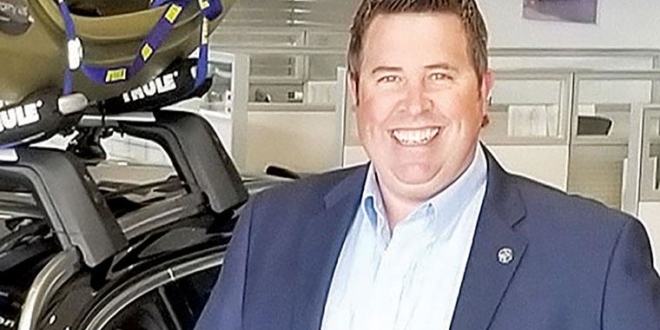
Brown: “It was …trial by fire for being a young guy”
When the recession hit and Chrysler went bankrupt, most remaining Chrysler dealers hunkered down by slashing inventory.
Charlie Brown built up.
Brown, 39, was then the used-car manager for Chrysler-Dodge-Jeep of Eugene, a Lithia Motors Inc. store in Eugene, Ore. He tried to call Chrysler Financial one day. The phone rang repeatedly. Eventually, a custodian picked up the phone and told him that the lender was dissolved.
“Needless to say, the company’s capital was gone,” Brown, now general manager of Beaverton Buick-GMC and Portland Cadillac, both in Portland, Ore., said. “New-car sales were almost impossible with Chrysler in bankruptcy.”
Opportunity
But where others saw looming disaster and retreated, Brown saw opportunity and advanced. He figured consumers who absolutely needed to buy a car would buy used, and he built up his department accordingly.
Brown spent much of the recession traveling from auction to auction, picking up vehicles that sold for $10,000 or less several times a week. Many of these vehicles had been as much as $30,000 just a year earlier and were “too good of a deal to pass up,” he said.
His routine became formulaic. “It was be there. Work. Catch a flight. Buy cars. Go to another auction,” recalled Brown, who was named to Automotive News‘ 2018 class of 40 Under 40, 40 up-and-comers in auto retailing under age 40.
Charlie Brown
- Title then: Used-car manager, Chrysler-Dodge-Jeep of Eugene
- Dealership group: Lithia Motors Inc.
- Where: Eugene, Ore.
- Survival strategy: Stock up on attractive used cars.
“It was the greatest trial by fire for being a young guy coming through that time,” he said. It all came down to “being able to physically handle the demand of what it took to keep the dealership afloat back then.”
As Brown racked up frequent-traveler points with Hilton, he noticed changes at auto auctions. Only a few buyers would be in the lanes. Part of that was because some dealers axed their used-car buyers’ travel budgets and told the buyers to shop online. But the changes were broader than that.
“When a huge portion of dealers are trying to liquidate their inventory just to cover payroll and building payments, it was just a flood of vehicles on the market,” Brown said. “People would thin out, and a lot of it was because people lost their job. They folded up shop. What you really noticed was no one was buying. It just became a seller’s market.”
Lack of faith
Brown’s dealership staff didn’t always have faith in his strategy. “It made my general manager … extremely nervous because we were going against the flow,” he said. “The vast majority of dealers were going the opposite direction.”
Meanwhile, his dealership was slashing expenses and taking a hard look at staffing levels.
“We made the hard decisions. We had to trim our employees at the dealership in half. Some of it needed to be done anyways. It’s amazing when you come out the other side of a recession,” Brown said, “you decide who’s a luxury and who’s a key player in the organization.”
Despite the doubts, Brown’s strategy worked. His store’s new-vehicle sales slumped to just 15 units a month in the recession — in a good month. But having attractive used-vehicle inventory helped the store sell 70 to 80 used vehicles a month right through the recession, and that contributed to its survival.
